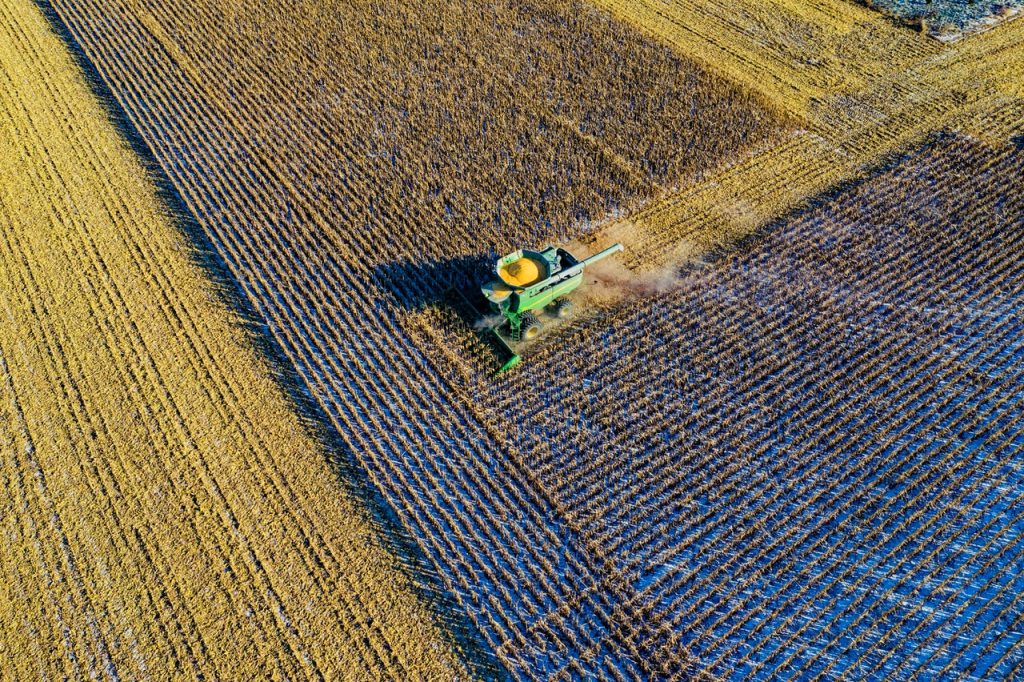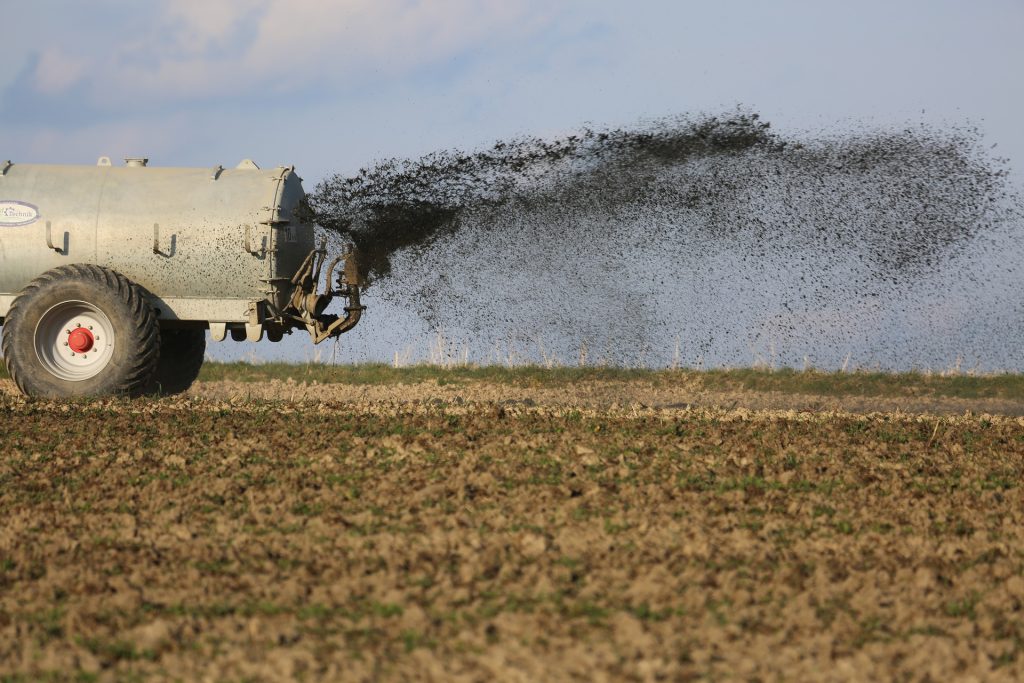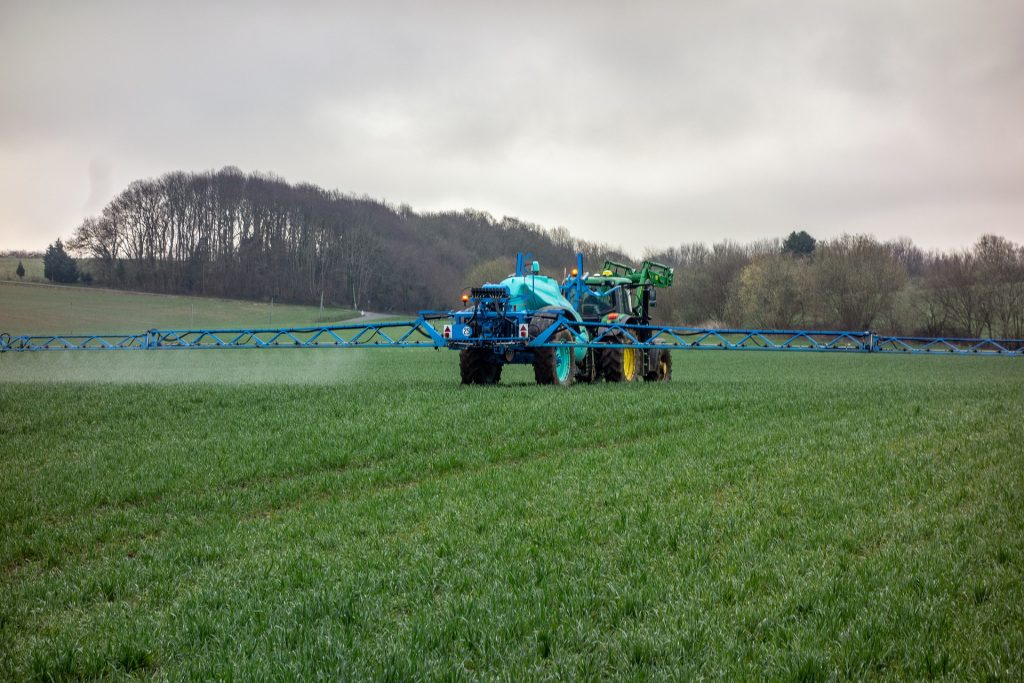WELLINGTON COUNTY – As the final passes are made through Wellington County’s agricultural fields, closing out a soggy growing season, it will soon be time for growers to think about winterizing farm equipment.
The Advertiser reached out to local agriculture equipment companies for advice on what growers should be paying attention to before hibernating their machinery.
Combines
From Premier Equipment’s Ospringe location, foreman Jim Martin offered some advice on combines.
The biggest piece of advice Martin has for growers is to track what breaks during the season and to take advantage of the winter downtime to make repairs in time for spring.
“We do a lot of that here,” Martin said of winter repairs, adding, “We almost sell more combine parts in the winter than during combining seasons.”
Premier offers a winter checkover package for combines with the machines typically in the shop for one to two weeks, depending on the amount of work needed.
When storing the combine after servicing, Martin said, batteries should be disconnected to prevent draws from the combine’s electrical system. He also underscores the importance of taking the time to clean combines before storing.
“All that grain in all the nooks and crannies invites rodents to come crawling around looking for food and rodents chew on wires and hoses and cause problems,” Martin said.

Ospringe Premier Equipment shop foreman Jim Martin underscored the importance of taking the time to clean combines before storing to avoid tempting rodents to nibble on wires and hoses. (Pexels image)
A thorough inspection of belts, bearings, threshing elements and wear points, such as on the feeder house, will take about a day.
“It’s a good idea to check and adjust your feeder house, tailings elevator and clean grain elevator chains,” Martin said.
Chains in good shape last longer and if replaced once there’s a bit of stretch in them; sprockets will last longer.
Over winter, Martin says growers need to be thinking not only about the equipment they’re putting away but the spring implements they’ll eventually bring out, in terms of needed parts because of supply chain disruptions and delays.
Come planting season, Martin suggests operators double check fluid levels before committing to the field, in the event of an overwintering leak.
And on the topic of fluids, Martin also said, “It’s a good idea this time of year to go around and check your antifreeze strength in everything.”
Manure pumps and tanks
Nicholas Grose covers sales/marketing at Mapleton’s Husky Farm Equipment and offered advice on manure pumps and tanks.
His first piece of advice: wash pumps properly.
“So that’s pressure wash down the tube, as well as on the outside of the machine,” Grose said.
Tanks should be washed in a well-ventilated area, Grose advised.
“The big thing that I’m watching for when you’re washing out a tank is that you’re not entering the inside of the tank,” he said, explaining that lethal hydrogen sulfide gas could be lingering within.
“There should be access points in several spots on the spreader that allow you to wash it,” Grose pointed out.
Continuing, he said, “When you’re done washing it, you want to leave access ports open so that fresh air is flowing through all the time so there can’t be any buildup of gas.”

Nicholas Grose of Husky Farm Equipment said to wash manure tanks through access points and to never enter the tank. (Pixabay image)
On manure pumps, Grose said to check for, and remove with a pocket knife, foreign debris wrapped around bearings; check the oil level in the gearbox; and ensure PTO crosses are greased and any damaged shields are properly replaced.
“Those are the areas that if we look at them, we’re likely to see any issues that have arisen with the equipment during use,” Grose said.
The advice comes because of people who have a tendency to put equipment away unrepaired, he said.
Most of the suggested maintenance items can be done at little to no cost, save for shields which run from several hundred to several thousand depending on the extent of damage.
“Most of the time, it is a no-cost, preventative, ‘keep things clean and well up-to-date and you won’t have problems next year’ thing,” he said.
After washing a spreader out, Grose said it’s a good idea to check the pump at the front of the spreader for greasing, condition of seals and the PTO driveline.
Before storing for the winter, ensure tires are at the proper inflation level and coat the outside of the tank in a protective coating like a mixture of hydraulic or vegetable oil to keep manure from sticking.
If you’re doing late-season hauling, ensure everything is drained out before leaving equipment overnight in freezing weather.
“I view winterizing entirely as a preventative maintenance concept,” Grose said.
Roberts Farm Equipment service manager Chad Roney also approaches winterizing from the same perspective and said being proactive can go a long way.
Sprayers
Roney emphasized the importance of ensuring sprayers are protected for the winter freeze.
Most of their Wellington, Grey and Huron county customers’ self-propelled sprayers are winterized by service technicians whereas smaller, pull-type sprayers are often handled by the farmer.
“When they freeze, it’s an ugly mess,” he said. “You want to make sure that you get some plumbing antifreeze into all those lines into the tips and into the pumps to protect that stuff.”
Plumbing antifreeze, he said, is the most economical go-to for the job.
Roberts offers an end-of-season inspection, with November to February being their busy months, so growers can “go out there and hook on your piece of equipment and go with a reasonable amount of confidence,” Roney said.

Roberts Farm Equipment Service manager Chad Roney said to ensure sprayers are properly treated with anti-freeze to avoid a big cleanup job. (Pixabay photo)
General tips
Roney said it’s important not to neglect small-engine machinery and to use a fuel stabilizer for storing over winter.
He also suggested disconnecting batteries and hooking up a trickle charger to maintain their life.
“They will naturally have surface discharge,” he said, adding, “the cold is very hard on batteries, very hard.”
Before putting away machinery, Roney advises to “get it warm and drop that old engine oil out” and replace with fresh oil “so that you’ve got all good stuff coating the cylinder walls and the block and the engine.”
If you’re working with equipment using diesel exhaust fluid (DEF), Roney cautions the fluid itself can crystalize and plug lines if stored for several months.
“I know there’s very few people that go through this storage process,” he said.
He recommends draining DEF and flushing the tank with deionized water. Some producers will avoid the process and occasionally run their equipment instead to prevent the DEF from crystalizing.
Preventative maintenance done in the offseason despite wanting to just get equipment put away, Roney said, can go a long way in avoiding costly downtime during the grind.
“So many spring phone calls are: ‘this won’t start,’” he said.
Paying attention to operating hours and servicing at recommended hours, Roney said, is one the easiest and cheapest ways to keep hydraulic pumps and transmissions from failing.




